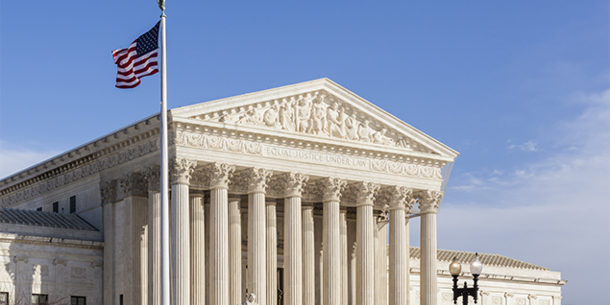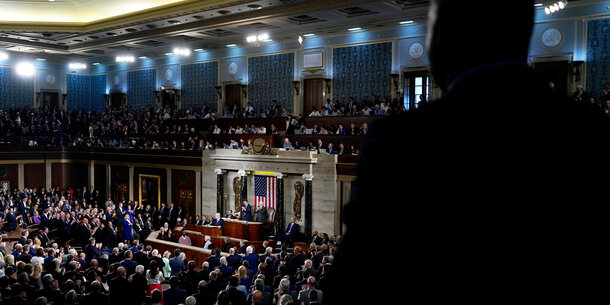For Immediate Release
August 10, 2023
Contact:
Julian Brookes, Brennan Center for Justice, brookesj@brennan.law.nyu.edu
Janel Forsythe, Campaign Legal Center, jforsythe@campaignlegalcenter.org
Lyn Whitley, League of Women Voters of Washington, lyn.whitley@lwvwa.org
Cindy Black, Fix Democracy First, cindy@fixdemocracyfirst.org
The Brennan Center for Justice at NYU Law, Campaign Legal Center, the League of Women Voters of Washington, and Fix Democracy First, today filed an amicus brief in State of Washington v. Meta Platforms, Inc. supporting a Washington state law that advances voters’ right to know who is spending in their elections.
Meta Platforms, Inc. — parent company of Facebook and Instagram — has challenged the constitutionality of Washington’s Disclosure Law, which provides the public with vital information about spending in state elections by requiring commercial advertisers, including online platforms, to keep and make available records related to the election ads they accept. This measure is critical in light of the dramatic rise in spending on digital political advertising in recent elections and ensures that online ads are held to equivalent standards of transparency as other political advertising. When Facebook allows political candidates and groups to pay for election ads on its platform, it is responsible for disclosing who paid for them and who was targeted and reached.
Meta’s failures to comply with this law resulted in 2022 in a $25 million penalty and a decision by the Washington Superior Court, which ruled that “This is clearly a very appropriate subject for disclosure, and the law is very constitutional.” Meta has appealed the decision to the state Court of Appeals, pressing its argument that the law violates its First Amendment rights. This assertion ignores decades of Supreme Court precedent recognizing that campaign finance transparency laws are constitutional and an important tool to enable voters to make informed decisions when they vote.
"Whether a political ad is on TV or a website, citizens have the right to know who’s spending money to influence their vote,” said Mekela Panditharatne, Counsel in the Democracy Program at the Brennan Center for Justice at NYU Law. “Digital ads should be held to the same transparency standards as other political advertising. Washington’s disclosure law makes that possible, and it is backed by decades of legal precedent.”
“Voters across the country have a right to know which wealthy special interests are spending big money to influence their vote and their government. This case gets to the heart of why that right is essential,” said Tara Malloy, Senior Director for Appellate Litigation and Strategy at the Campaign Legal Center. “Thankfully, the state of Washington has made an effort to fulfill that right by passing laws that make information about political ads easily accessible — the result is a more robust debate from a more diverse set of voices, more accountability and less corruption.”
"Meta, and all digital communication platforms, must comply with state disclosure laws and respond to public requests including who bought the ads and what audiences are being targeted,” said Mary Coltrane, President, League of Women Voters of Washington. “Without the guardrails provided by disclosure laws, the potential harms of digital electioneering will only multiply as technologies continue to advance, Coltrane added.
“The people of Washington state need to know who is buying ads for political campaigns, and that includes any political advertising on social media platforms.” said Cindy Black, Executive Director of Fix Democracy First. “Fix Democracy First believes disclosure in political campaigns is vital information for voters to make informed decisions. Social media platforms should not be exempt from disclosing the details about who’s behind an ad, as well as who’s being targeted in political advertising. ”
As political advertising moves increasingly online, disclosure laws like those in Washington have become an indispensable resource to voters. Such laws make it harder to spread disinformation without accountability and easier to assess both who is behind each advertisement as well as the full range of advertisements being fielded — a key piece of an ever-growing puzzle as online platforms give advertisers the ability to micro-target ads to specific audiences.

